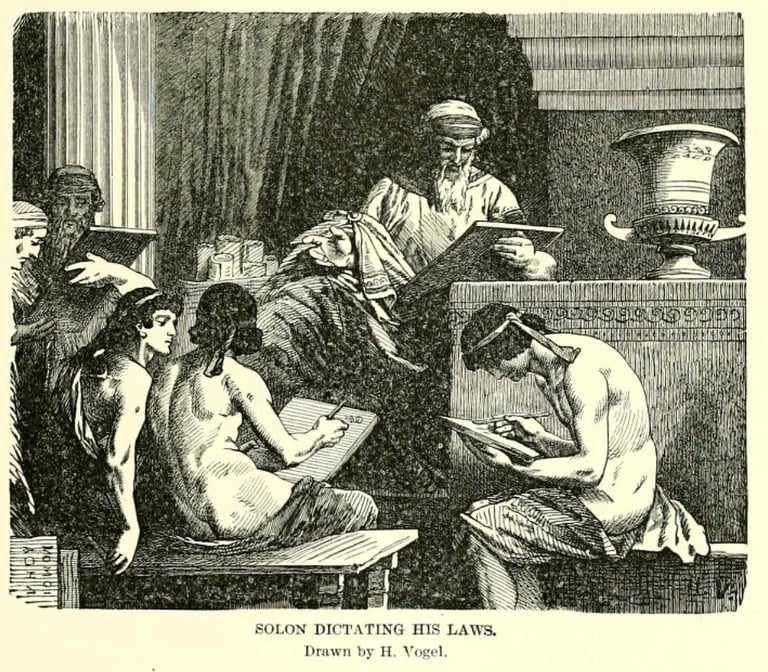The Laws of Solon: Foundations of Athenian Democracy
In 594 BCE, Athenian statesman Solon introduced pivotal legal reforms to ease social strife. He replaced Draco's harsh code with a fairer system, abolishing debt slavery and broadening political participation through a wealth-based tiered system. Publicly inscribed for transparency, Solon's reforms balanced class interests, forming a crucial groundwork for Athenian democracy and profoundly influencing Western legal traditions.
In 594 BCE, Solon, an Athenian statesman, introduced legal reforms to address economic disparity and social unrest in Athens. His laws replaced the harsh legal code of Draco, which imposed severe penalties. Solon focused on fairness, abolishing debt slavery and redistributing political power beyond the aristocracy. He introduced a tiered system where political participation was based on wealth rather than birth, ensuring broader representation. By granting more citizens access to political and judicial roles, Solon’s reforms laid the groundwork for Athenian democracy.
To ensure transparency, Solon had his laws inscribed on rotating wooden tablets, making them publicly accessible. His legal framework balanced the interests of different social classes and set a precedent for future democratic institutions. Though later modified, his laws influenced governance in Athens for centuries. Solon's emphasis on justice and civic participation became a model for other Greek city-states and left a lasting impact on Western legal traditions.


